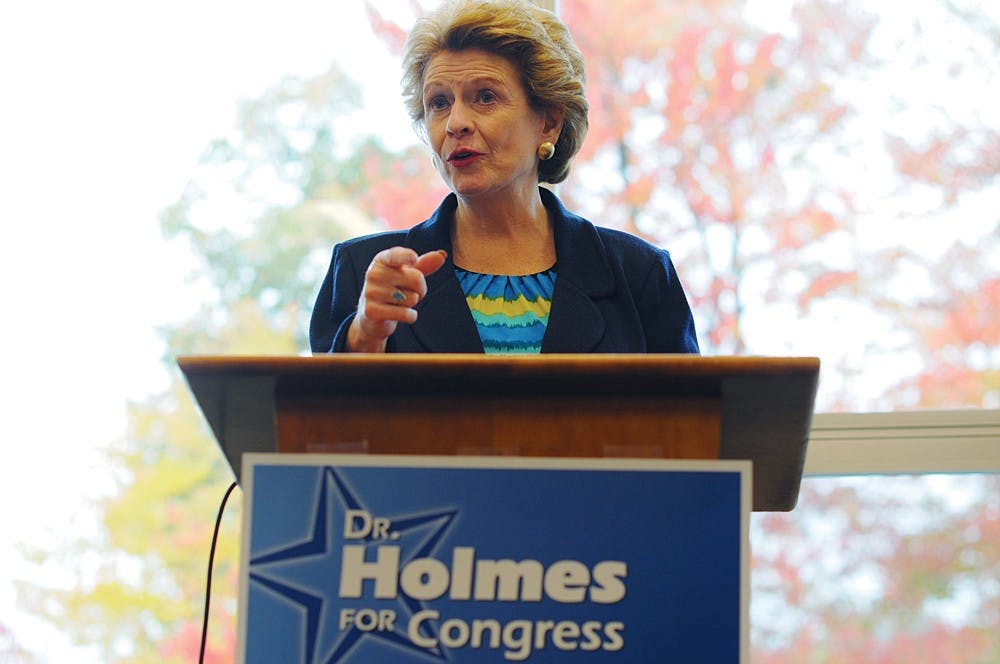Debbie Stabenow speaks at symposium on Great Lakes restoration

Debbie Stabenow, D-Lansing, was the keynote speaker at the Great Lakes Initiative Thursday about restoring of the Great Lakes and Central Michigan University's impact on the issue.
Stabenow is the Co-Chair of the bipartisan Senate Great Lakes Task Force, and has been leading the effort in Congress to stop the spread of Asian carp and other invasive species into the Great Lakes.
"The $10 million grant from Great Lakes Restoration Initiative is very significant recognition of what CMU is all about and what they’re doing," Stabenow said. "(CMU is) conducting what may be the largest monitoring program in our history."
The symposium was sponsored by the Institute for Great Lakes Research to serve as a learning opportunity for students unaware of issues facing the lakes. Gary Michaud, a Milford senior, works in the aquatic ecology research lab and said the symposium served as a gateway to understanding Stabenow's stance on the restoration of the Great Lakes.
"Its cool to see someone who genuinely cares and isn't focused on making a political move," Michaud said. "It's important to preserve, and I believe Stabenow is taking all the right steps."
CMU has partnered with the Environmental Protection Agency to provide Great Lakes research. University President George Ross introduced Stabenow as the voice for the Great Lakes Restoration Initiative.
"Great Lakes are a tremendous resource and it's an honor to contribute to the health and preservation to the largest supply of fresh water," Ross said.
CMU's Institute for Great Lakes Research serves as the forefront of researching and protecting the spread of invasive species such as asian carp and faucet snails.
The Great Lakes contain over 180 exotic animals, receiving a new species every eight months. Researchers have located 19 possible sources that allow their infestation into the great lakes.
Stabenow's initiative involves installing barriers at the mouth of each source. She also worked with farmers to pass the Agricultural Act in 2014 which benefits famers and Stabenow's initiative by providing tools to halt the run-off of pesticides into fresh water.
"There's a lot happening from science, to creating research, local conservation partnerships, policies that will back them up. But in the end it really goes back to a powerful force for change which is our own personal attitudes," Stabenow said.
In 2012, Stabenow's bipartisan Stop Invasive Species Act was signed into law. The law required engineers to submit plans to congress outlining way to stop the spread of invasive species.




